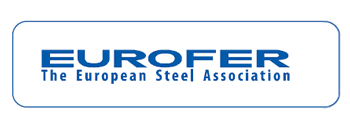Brussels, 01 December 2017 – The Global Forum on Steel Excess Capacity ministerial-level meeting has agreed on principles and recommendations whereby countries and regions should dismantle market-distorting subsidies and other government support measures and share data and information on the process of capacity reduction.

“The framework is an expression of real political commitment to address the root causes of global steel excess capacity”, said Director General Axel Eggert of the European Steel Association (EUROFER). “We applaud the German Presidency of the Global Forum, the European Commission and the EU member states, for leading the process to a successful outcome”.
Never before have countries worked together – at a global level – to develop a policy inventory as comprehensive as this one for steel. Although not binding in law, the agreement is a significant step forward as all market distorting policies and practices beyond WTO rules are targeted.
“This framework provides a hook to structure and channel the real implementation work ahead of us, with the ultimate goal of enforceable rules that provide a real global level playing field for European steelmakers”, added Mr Eggert.
“We recognise the efforts of China to reduce its massive excess steel capacity. However, these are only the symptoms of a plague of governmental support schemes. Unless these are removed, we will continue to see significant distortions in the global steel industry”, emphasised Mr Eggert.
“EU Trade Defence instruments will continue to be indispensable over the long term so as to level the playing field for EU steel producers, even as countries not party to the agreement – such as Iran – continue to build up supplementary excess steel capacity”, concluded Mr Eggert.
The OECD estimates that there was nearly 740 million tonnes of excess capacity in 2016. Global demand for steel in that year was 1.52 billion tonnes, according to the World Steel Association.
About the European Steel Association (EUROFER)
EUROFER is located in Brussels and was founded in 1976. It represents the entirety of steel production in the European Union. EUROFER members are steel companies and national steel federations throughout the EU. The major steel companies and national steel federations in Switzerland and Turkey are associate members.
About the European steel industry
The European steel industry is a world leader in innovation and environmental sustainability. It has a turnover of around €170 billion and directly employs 320,000 highly-skilled people, producing on average 160 million tonnes of steel per year. More than 500 steel production sites across 22 EU Member States provide direct and indirect employment to millions more European citizens. Closely integrated with Europe’s manufacturing and construction industries, steel is the backbone for development, growth and employment in Europe.
Steel is the most versatile industrial material in the world. The thousands of different grades and types of steel developed by the industry make the modern world possible. Steel is 100% recyclable and therefore is a fundamental part of the circular economy. As a basic engineering material, steel is also an essential factor in the development and deployment of innovative, CO2-mitigating technologies, improving resource efficiency and fostering sustainable development in Europe.
